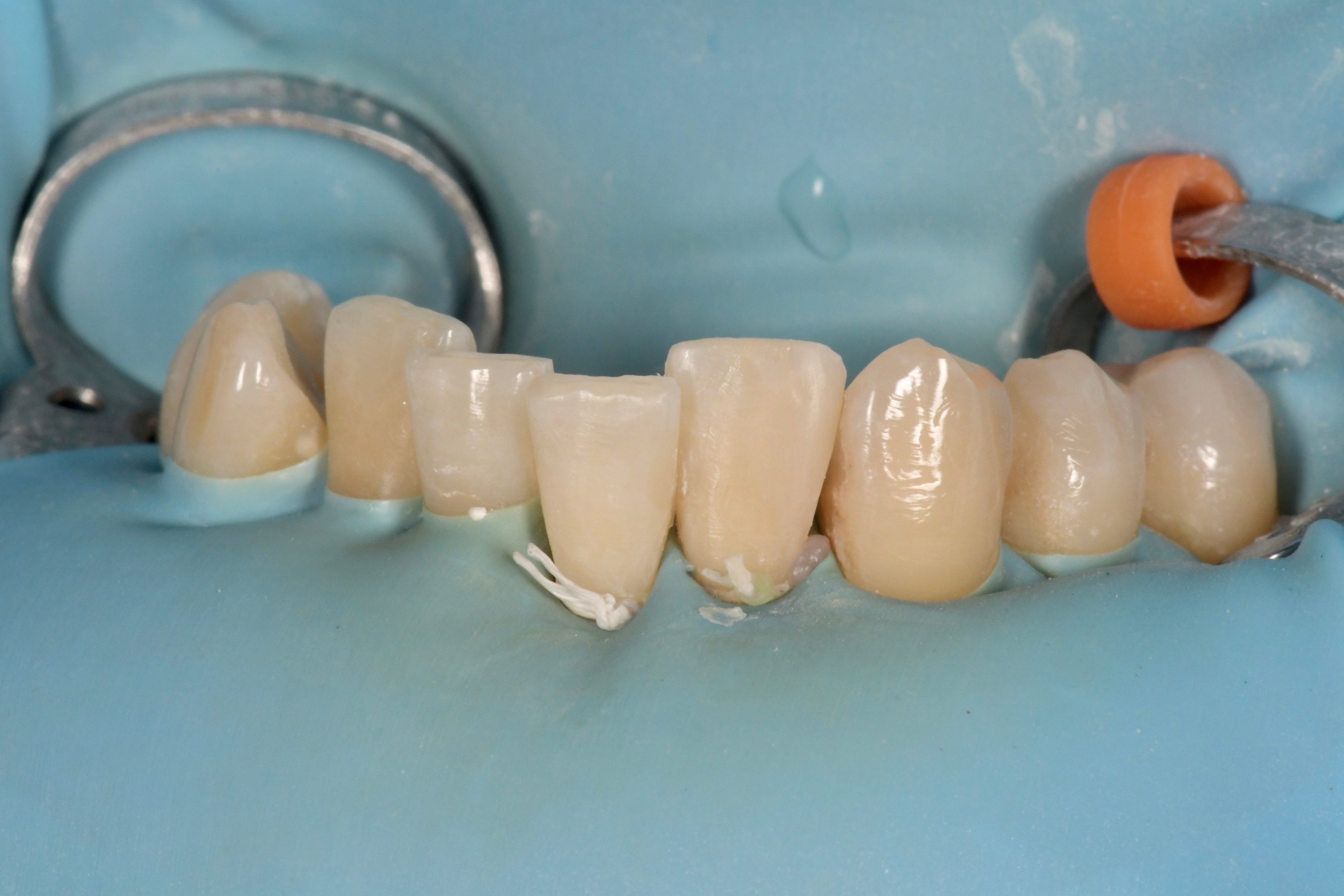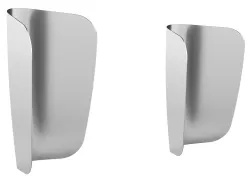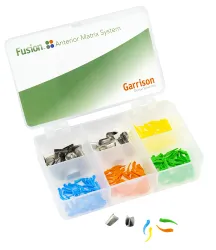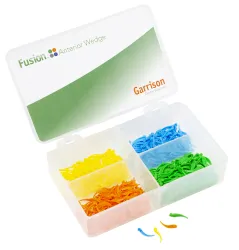A 23-year-old male presented with recurrent caries under an existing composite restoration on the distal of his lower left lateral incisor. New interproximal caries was also noted on the mesial of the same tooth and the distal of the adjacent lower left central incisor clinically and radiographically (Figure 1).
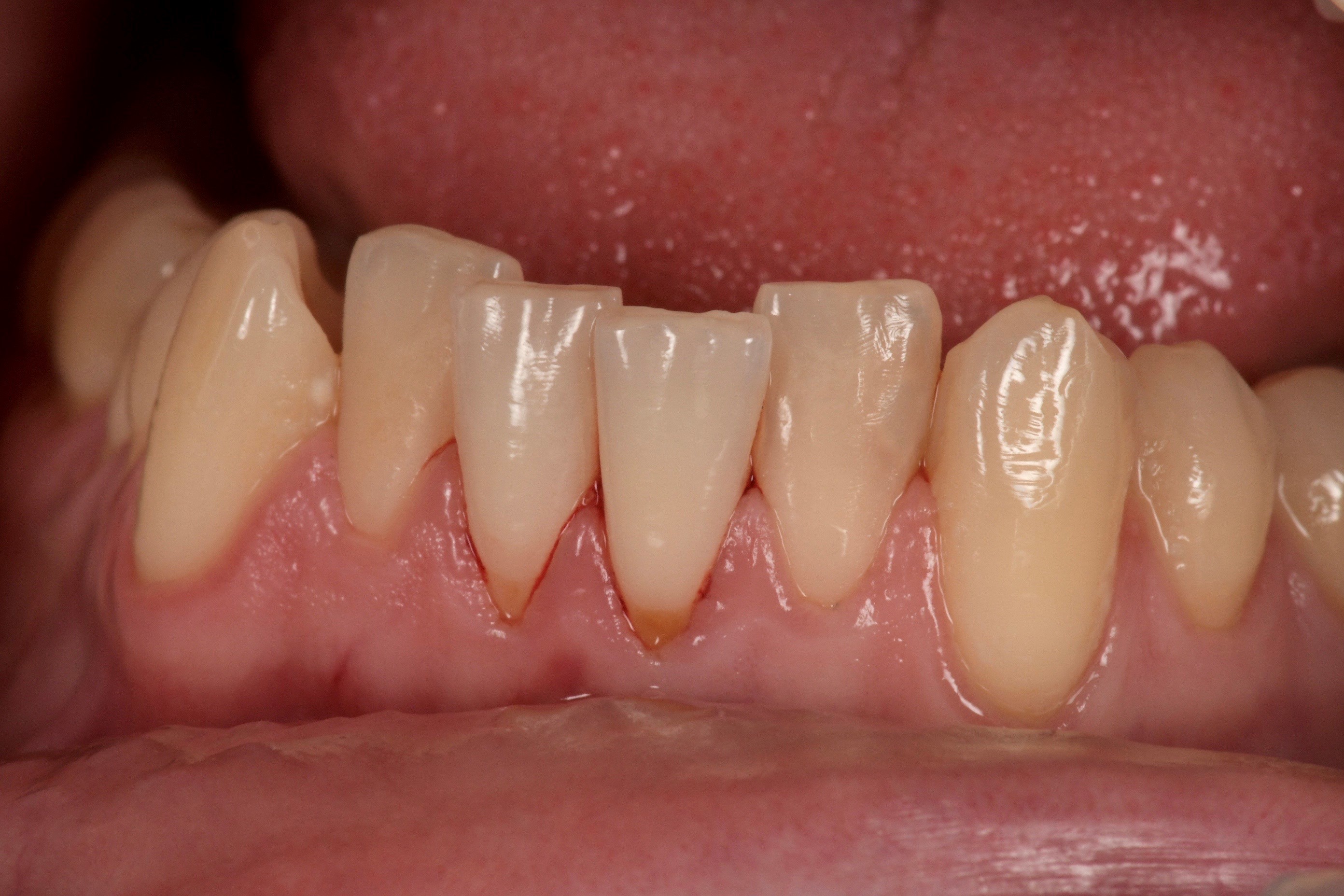
After shade selection and rubber dam isolation, existing composite resin restoration and caries were removed. Caries at the distal of the lower left lateral incisor was extensive and involved a large portion of the facial and lingual walls (Figures 2 and 3).
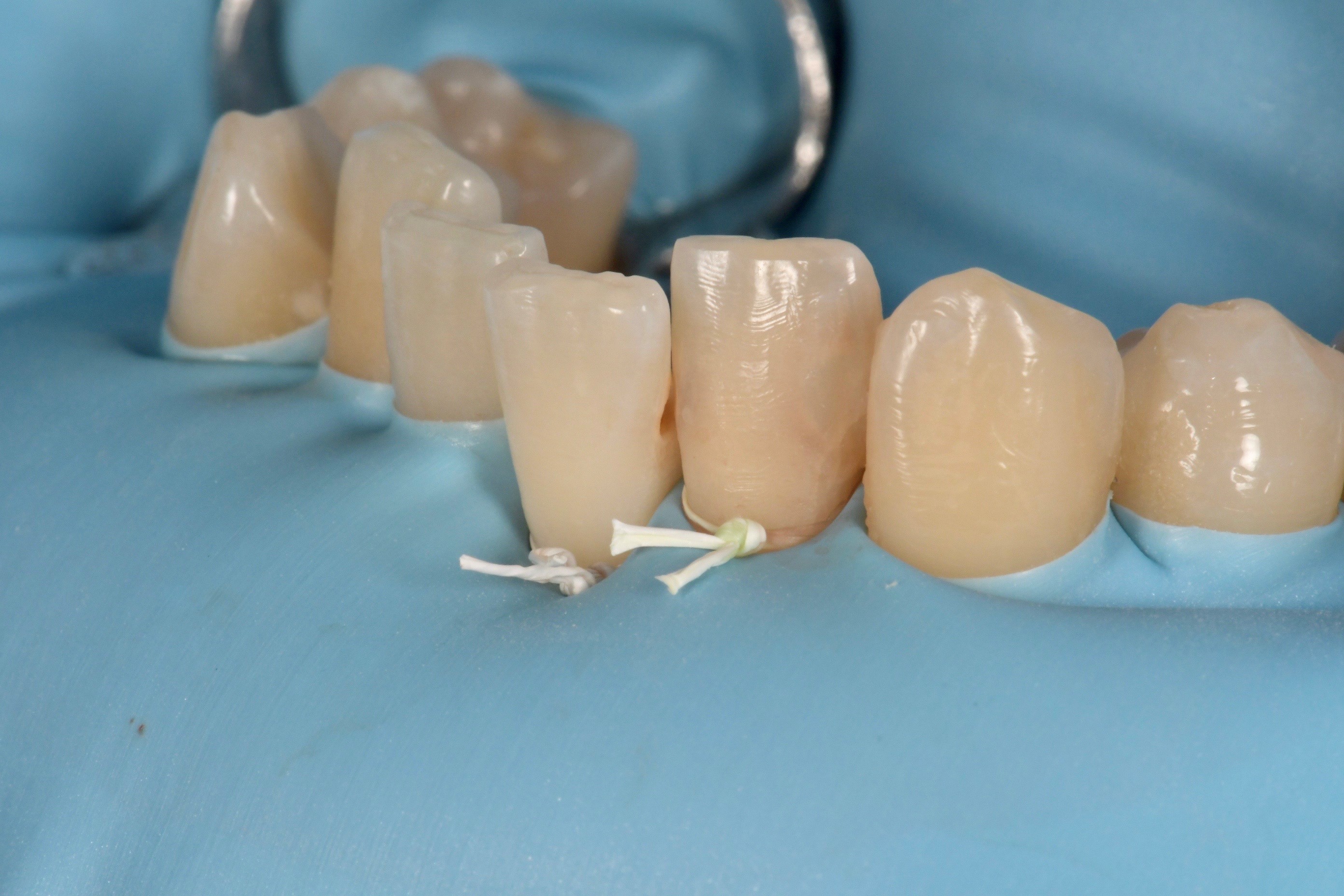
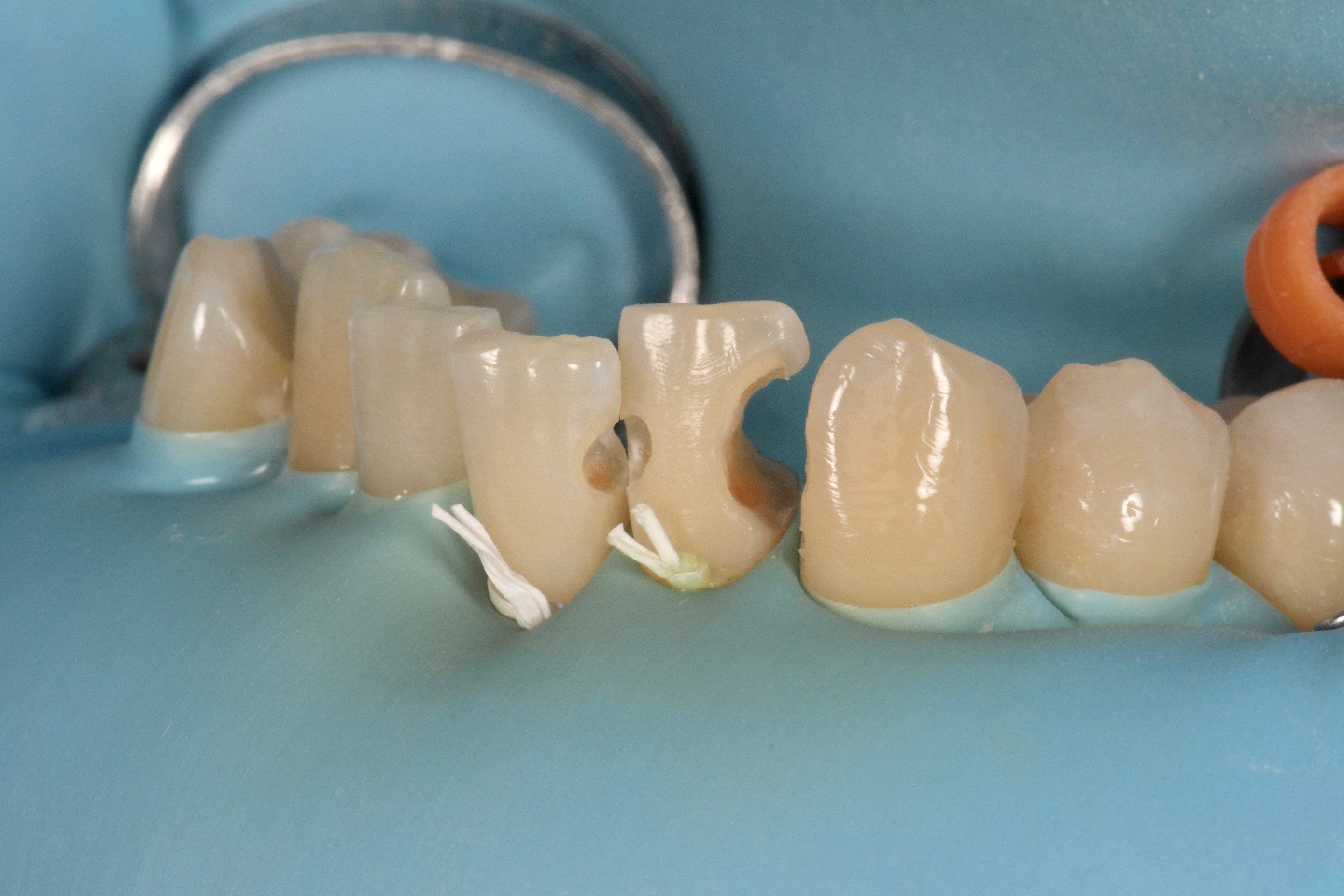
A long Anterior Fusion Band (Garrison Dental) was slid into the sulcus on the distal of the lateral incisor beyond the cervical finish line. A yellow extra small Anterior Fusion Wedge (Garrison Dental) with radial curvature was placed to provide a firm seal at the gingival seat, closely adapting the band on the facial and lingual, which would not be possible with a conventional wood wedge (Figure 4). For this through-and-through cavity preparation, the anatomical band provided the ideal contour to build up the lingual wall, while allowing great access from the facial for incremental placement of composite resin.
Due to the thin 0.0015” thickness of the band, the wedge provided adequate separation between adjacent teeth. Light pressure was applied with a plastic instrument to push the band against the adjacent canine while small increments of Filtek Supreme Ultra composite (3M) were placed successively, accessing from the facial; starting with the more opaque dentin shade composite to block light transmission, then followed by body shade composite.
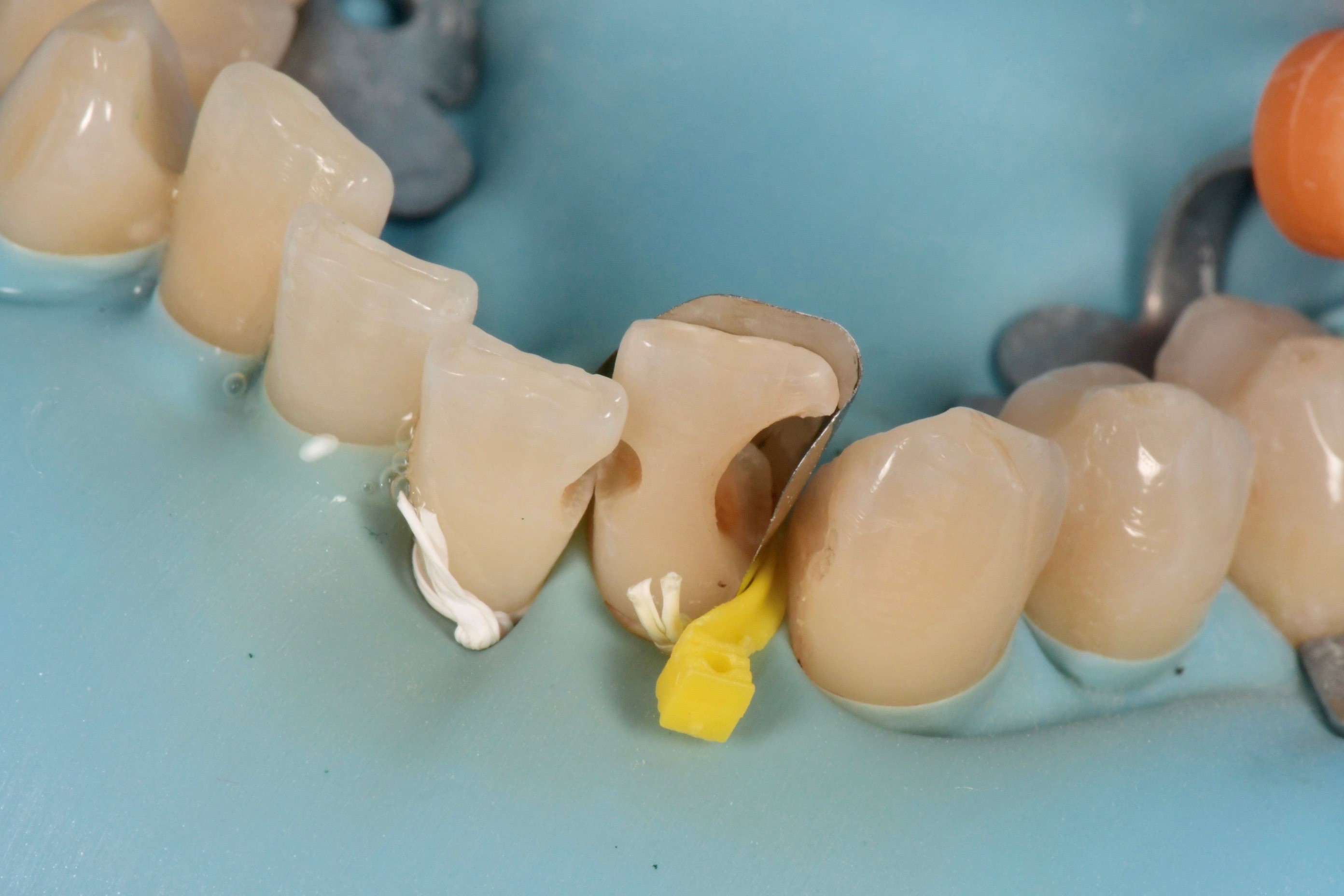
After complete curing of the composite, the Anterior Fusion Wedge and Matrix were removed to show minimal flash on the facial and lingual due to the built-in contour of the matrix band. Ideal gingival emergence profile (no black triangle) and great contact was achieved due to the unique design of the wedge (Figures 5 and 6). Final shaping and polishing were accomplished with Soflex discs (3M) and Enhance finishing points (Dentsply).
